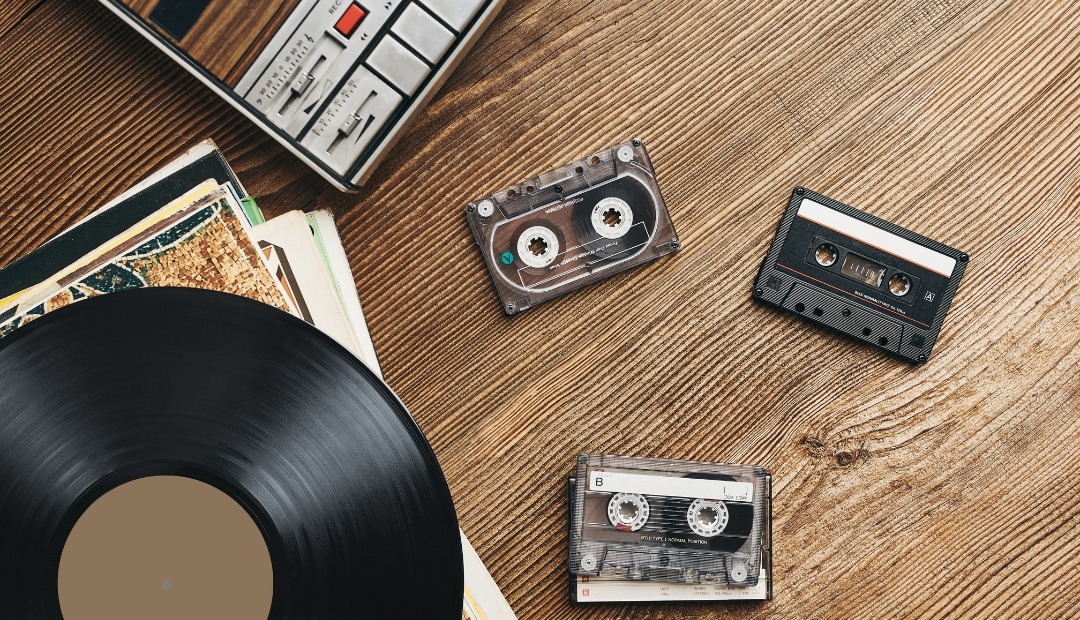In today's fast-paced world, where modern apartments in Baytown, TX offer a blend of convenience and comfort, it's easy to forget how life functioned before the digital age offered all our needs at the tap of a screen. Back then, finding movies, diagnosing a health issue, stirring up a new recipe, catching up on the latest news, or even playing a game involved much more than just typing into a search engine.
Life before the internet embodied a simpler pace; mail took its sweet time, and memory recall was more than a skill—it was a necessity for remembering phone numbers of loved ones. Spelling errors were less common as spelling skills were honed without digital aids.
Seeing a friend's smile meant meeting face-to-face rather than glancing at a screen. Books and libraries were essential portals to information, providing answers that now fit onto a smartphone.
Instant information and seamless communication weren't luxuries we had; connectivity required effort and time, and staying informed or in touch demanded a bit more legwork and patience.
Ready for a nostalgic journey? Here's a collection of 13 things that will transport you back to life before the internet reshaped our daily existence.
Phone Books Were a Thing
Remember the thick block that you put on a chair to reach for something? No, it's not a chair riser or a stepping stool. It's a phone book-that chunky book of yellow pages filled with everyone's phone number in your area.
Need Directions? Use a Map or Ask Someone
If you've ever taken a foreign language class, you might have been taught how to ask for directions in that language. Back in the day, if you were lost you had to ask a stranger or try and find a physical map in a local gas station. But thanks to Google Maps, directions are given to easily map your way to keep you from getting lost.
Fax Was the Email of the Past
After snail mail, the fax machine was used to scan and send out most letters. Because it used the phone line, faxes could be a daunting task - just waiting to call the destination and not get busy signals. And, if you didn't have a dedicated landline phone for fax-only calls, you could only hope and pray no one was occupying the line. With the innovation of today's emails, you don't have to decipher what seemed like ancient symbols on garbled faxes or await for phone lines to clear to get your information to/from another party. Emails are sent at the speed of light.
Wait for a TV Show to Air
Can you believe there was once a time that the TV shows you watched went off the air before midnight—and there weren't the unlimited channels that are offered today, there were only a dozen- if that. You had to watch a TV show on its scheduled airtime or you had to wait for at least a week until the next episode aired, which means you could only watch one episode at a time. And the weekly episode you missed was long gone and you simply missed out. Yikes! Yes, there came a time when the invention more channels than anyone person could watch, and a time where you could record shows so that you never had to miss one, but now with Netflix, Hulu, Peacock, Prime or any other streaming service, you can binge on your favorite shows as long as your heart desires—or time permits.
Dating Was Different
Getting love letters from secret admirers in lockers, going on blind dates set up by a friend, calling your crush on the land line phone-and hope no one was listening in on another extension. No Tinder or other dating apps to swipe through photos. No dating websites to see other people's profiles. No way to "match" with someone with like interests or easily meet anyone outside your circle of friends, family or where you lived. This was how dating looked before.
The Record Store Was a Popular Hangout for Music Lovers
Downloading songs on LimeWire (and transferring them to MP3 players) came in handy in the early 2000s. But before the internet, people had to buy vinyl, mixtapes, and CDs to listen to albums. Albums are making a comeback and are quite a novelty experience to be enjoyed at home, but no one is giving up the conveniences we have now. Spotify, Pandora and Apple Music allow us to listen to any kind of music any time, and wherever we may go.
Looking For Answers Could Make You Question Why
Desperately need to know the answer to a question so that it won't keep you up at night? Back then, you had to open an encyclopedia (if you owned a set) or take a trip to the library during its open hours. Of course, you could ask a friend or family, but who knew if their information was accurate. Now we simply Google it and the answer to almost any question is at your fingertips - a few taps away.
Newspapers Weren't Just for Art Projects
These days, we get the latest news-good and (mostly) bad-from TV stations, Youtube, Facebook, and Twitter. Having "paperboys" to deliver articles to read during breakfast is almost a true thing of the past. Yes, while we still read magazine, finding physical newspapers is getting harder and harder to do.
Collaboration Required a Face-to-Face Meeting
Gone are the days when we had to go physically make it into the office for work, go into a classroom to learn, or get on planes to meet for business meetings. Emails, Zoom, Teams, Facetime, Google docs and the latest virtual reality technology has all changed the way we collaborate, brainstorm, and meet deadlines. With these digital tools, classes are taught, meetings are held, business are run and the sky is the limit on getting things accomplished.
Photos Were Printed
We all have our favorite baby pictures and of course those our moms love to pull our and show to embarrass us when we least expect it. Before the internet, pictures were taken with cameras and the negatives were sent to a printer. All of the precious- once in a lifetime moments could be lost if the negatives were handled inappropriately, exposed to light, or if the processing machine ate them. Printing took anywhere from a few hours to days. There were no previews to know well you looked and if your camera wasn't adjusted correctly- everything could come out blurry. Those were--not the days. Sharing photos was done by taking out photo albums, opening wallets, or hanging framed pictures. Now, we can take, preview and share photos in seconds. And thanks to filters, everyone can be photogenic—just say "Cheese".
Trolls Weren't Real
Trolls were fictitious giants or dwarves. Admit it, who wasn't afraid of the thought of them when we were younger. Today though they may not be found in dreams or looked for under our beds at night, they're still the stuff nightmares are made of. Only today, trolls are waiting to pounce on social media posts and provoke arguments.
Shoppers Ordered Through Catalogs
Amazon was just this huge rainforest in Brazil featured on National Geographic. Things were ordered through catalogs. Can you remember choosing your gifts through the big store catalogs, or seasonal flyers that were sent out? You had to fill out forms on mail-order catalogs to be sent in or call to place an order, then wait for months to get processed before getting your order. Thankfully, times have changed. Anyone including the avid shopaholics can shop all day and night, find the best deals and have items delivered in days. It may not always be great for our wallets to have such accessiblity, but it certainly helps keep the delivery companies in business.
People Had to Call
Before the internet, before cell phones, there was the landline. If your car broke down or if you needed to make a call when you were away from home, you had to find a payphone and hope you had coins in your pocket. No, it wouldn't take bills and it wouldn't make change. There was no such thing as a mobile phone except for maybe the rich and famous. Phones were simply for calling. Long are the days of the past. FaceTime and video calls have brought us a long way. We can call our friends and family and visit with them from anywhere in the world.
People often talk about the "good ole days." Times have changed, not always for the best, but the internet has helped make our lives easier in a multitude of ways and allowed us to stay connected with everyone we love. I wonder what people will be saying about "these days" in 50 years?
Oxford at Country Club Apartments in Baytown, TX



